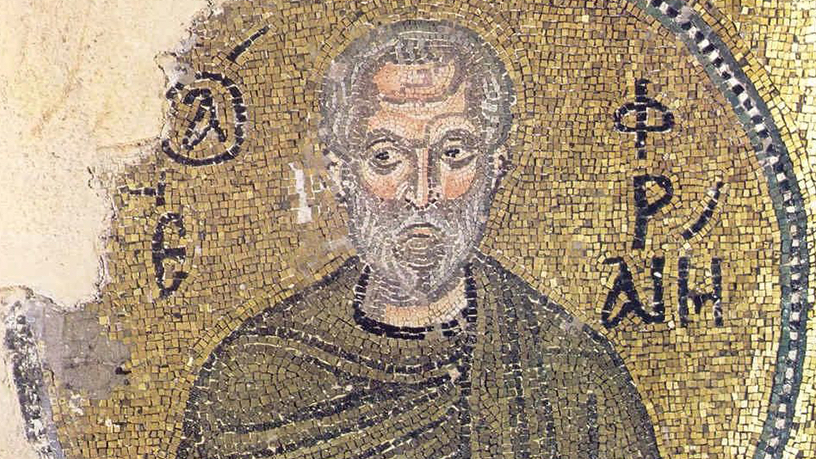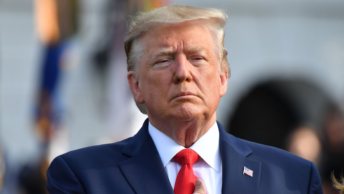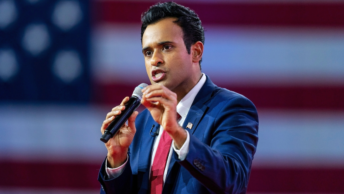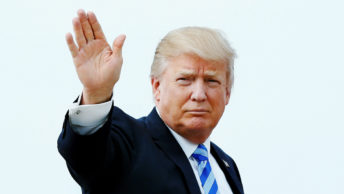Bishop Gregory Parkes’ column was titled “Compassion for immigrants, refugees will keep America Great.” I wondered: Is this title a rejoinder to Trump? A way of saying, perhaps, America’s already great, thank you?
The column’s first paragraph answered my questions in the affirmative. The Bishop claimed the President’s recent executive orders “stand in stark contrast to the foundations upon which our nation was built.” In other words, the Bishop thinks the executive orders are un-American.
He continued in this vein: The orders mandate “walls along our border with Mexico, increased deportation and detention of the undocumented, punishments against so-called sanctuary cities and counties, and a halt to refugee resettlement.” (Note: “so-called” implies the term “sanctuary” is inaccurate. In fact, the term is used by the officials of such cities to describe their policy, so it is obviously accurate.)
In response to the executive orders, he adds, we should “cry out on behalf of the immigrant and the refugee since all people bear the image and likeness of God.” The reasoning here seems to be that because refugees bear the image and likeness of God, they have a right to live in America. Since all human beings bear that image, the implication is that everyone who wants to live here should be able to. (Both conclusions are non-sequiturs.)
As far as vetting is concerned, the Bishop says, refugees undergo a “lengthy and thorough” process before they enter the country, which challenges the administration’s claim that refugees pose a danger. The Bishop is correct in describing the process, but he does not mention the growing concern of immigration authorities over fake identities that can defeat the process and therefore, presumably, meet the criterion for danger.
In summarizing his view of the administration’s hold on immigration, Bishop Parkes deplores “the language of fear and intimidation [that] conveys a false impression of who immigrants and refugees are and what brings them to the United States.”
When I finished Bishop Parkes’ column, I felt more than a little disappointed. Instead of addressing the important issue of immigration with the probing analysis that is the hallmark of Catholic intellectualism, the Bishop offered a one-sided appeal little different, save for its religious context, from secular liberal screeds. To be more specific, the Bishop made no mention of matters crucial to a meaningful discussion of immigration, notably these:
The difference between legal and illegal immigration
The fact that terrorists have said they plan to infiltrate America
The constitutional requirement that the government protect the people from such dangers
The distinction between a pause in immigration and a total ban of immigrants
The moral difference between individuals helping the poor voluntarily and the government doing so for them. (Would the Good Samaritan have been as virtuous if he had forced the innkeeper to take care of the needy man rather than paying him to do so?)
It seems to me that the Bishop has forgotten the wisdom of Pope Leo XIII’s Rerum Novarum—specifically, his claim that all people have a duty, after taking care of their own needs, to help their neighbors in need, but this duty is one of charity rather than of justice, a critical distinction. In addition, Leo explained, though government is also obligated to care for the poor, it should not violate the rights of others. Thus, “the first and most fundamental principle . . . if one would undertake to alleviate the condition of the masses, must be the inviolability of private property.” And “neither justice nor the common good allows” taking from some to give to others. (For a more detailed discussion of this and related encyclicals, see “American Catholics and Social Justice.”)
Interestingly, two days after Bishop Parkes’ column was published, the same newspaper published a news piece titled “Orthodox Syrians Pray for Peace—and Security.”
The priest who performed the Orthodox religious service was Father John George Kouki, who grew up in Syria, but came to Florida to minister to immigrants from his country. When the reporter asked the pastor what he and his congregants thought of President Trump’s executive order on immigration, he responded: “About 95 percent of my congregation is Republican. We are with Trump because he supports Christianity. We must pray for peace. And hope.”
The reporter then asked the same question to several parishioners. A university student answered, “President Trump has ideals that we, as Christian, agree with, pro-life being the greatest one.”
A woman with 14 siblings who escaped Syria to various European countries added her approval of the President’s executive order, saying, “Whatever it takes to protect us.”
A man remarked, “The ban is awesome. And it’s not a Muslim ban. We know families who were sent back who are Christian.” He also offered an analogy: “If you have a jar of, say, 200 peanuts, and you know that two of them might be poisoned, would you eat from that jar?” The moral concerning immigration, he explained, is that we need to be careful because “those two terrorists could kill a lot of people.”
The contrast between the Catholic Bishop’s view and that of the Orthodox Syrian parishioners could not be more striking. And it reveals a significant irony. Whereas Bishop Parkes purports to “stand with and support our immigrant and refugee sisters and brothers,” they (or at least this group of them) do not stand with or support him!
I will continue to hope that Bishop Parkes becomes better informed of the complexities of the immigration issue and the positions of those with whom he disagrees, such as the Orthodox Syrians cited above and the many conservative Catholics in his diocese.
Copyright © 2017 by Vincent Ryan Ruggiero. All rights reserved









The Catholic Church is infiltrated with homosexual, progressive and career bishops, who promote the Social Justice Gospel at the expense of Traditional Church teachings. And this is only going to get worse as Francis appoints even more of the same. We are headed for a very dark period in Church history, as PBXVI warned about. Pray for some type of supernatural intervention. Perhaps the 100th anniversary of Fatima will bring this about.
Terrific article!!???